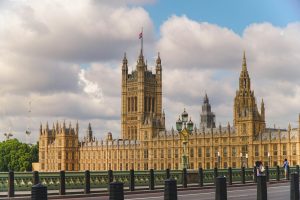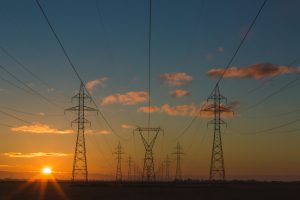As the Labour Party’s first conference in Government in over 14 years gets underway, energy policy is set to be a central theme. The 2030 clean power target is at the heart of Labour’s plan for Government. However, several key energy policy questions remain , such as the future of nuclear power, the decarbonisation of heat, and the future of the electricity market. Additionally, the specifics of GB Energy, a cornerstone of its energy strategy, remain uncertain.
In this article, Brevia explores the key questions Labour will need to address to provide clarity and direction for the energy industry.
With a team of experienced energy consultants attending Party Conferences, get in touch to find out how Brevia Energy can support your organisation.
Will Labour double down on nuclear?
In opposition, the Labour Party confirmed its commitment to nuclear power. However, with Hinkley Point C not expected to come online until the 2032, new nuclear energy does not align neatly with Labour’s clean power by 2030 mission. This raises the question: will the Government double down on nuclear investment, or shift focus to alternative technologies?
The Government has inherited the final investment decision on Sizewell C, as well as the previous Government’s SMR competition, led by GB Nuclear. While we do know that GB Nuclear is to be absorbed by GB Energy, the direction the Government will take beyond this on nuclear remains uncertain, indicating that the party’s stance on nuclear is still under development.
How will Labour deliver its target to make 5 million homes more energy efficient?
Decarbonising heat, particularly domestic heating, has been a challenging and often neglected policy area. For this reason, difficult decisions – such as the role of hydrogen in heating – have often been kicked further down the line.
Labour’s manifesto pledged to deliver its “Warm Homes Plan”, with £6.6 billion invested over the next Parliament to deliver energy efficiency upgrades to five million homes. While very much needed, this target is highly ambitious and not without its execution challenges. To date, we have heard little about how this will be delivered beyond the plan to offer grants and low-interest loans in partnership with local authorities.
In addition, the Labour Party, both in opposition and in Government, has not articulated a clear stance on various heating options, such as hydrogen or district heating. Notably, there have been increased references to the potential contribution green hydrogen can make when it comes to industrial heating, as highlighted in Foreign Secretary’s David Lammy’s speech at Energy UK’s annual conference on Tuesday, suggesting a potentially expanded role for hydrogen.
What next for the Review of Electricity Market Arrangements?
First announced in the British Energy Security Strategy back in April 2022, the Review of Electricity Market Arrangements (REMA) proposes the most extensive reforms to the UK’s energy system in over a decade. Two years and two consultations later, industry is still awaiting the outcome of the second consultation, initially expected in the summer but delayed due to the General Election.
While progress on REMA had been picking up pace, it seems increasingly unlikely for the new Government to stick to the initial implementation date of mid-2025. With REMA encompassing significant but longer-term changes to the structure of the energy market, the Government may choose to prioritise areas it perceives as having a more imminent impact on helping meet the 2030 clean power target, which as we know is the Party’s current focus.
Industry in particular will be looking to Government for clear long-term policy signals to guide its investment decisions, and clarity on key decisions with REMA will help enable coherent business planning.
Will Labour provide greater clarity on GB Energy’s role?
GB Energy, positioned as a cornerstone of Labour’s energy policy and seen as a key vehicle to achieving the UK’s climate change targets, will be a central discussion point during Conference. While we know GB Energy will be more than just an investment vehicle, with the ability to take stakes in, and manage projects, there is still considerably little detail on how it will operate. Clear answers to these questions would help industry players better understand how Labour plans to deliver its ambitious climate targets.
Conclusion
This Conference will be a defining moment for the Labour Government as it approaches its first 100 days in power. While the Government has taken important steps—such as removing planning restrictions on onshore wind—there is still much work to be done. As Labour solidifies its energy platform, industry and stakeholders will be looking for long-term signals to guide future investments and help the UK achieve its decarbonisation targets.
BREVIA ENERGY PROVIDES STRAIGHTFORWARD PUBLIC AFFAIRS AND PUBLIC RELATIONS SUPPORT TO ORGANISATIONS OPERATING IN THE UK ENERGY SECTOR.
Discover how Brevia Energy can help you and your organisation by visiting: www.brevia.co.uk/sectors/energy/. You can also contact the Brevia Team on 020 7091 1650 or email contact@brevia.co.uk



